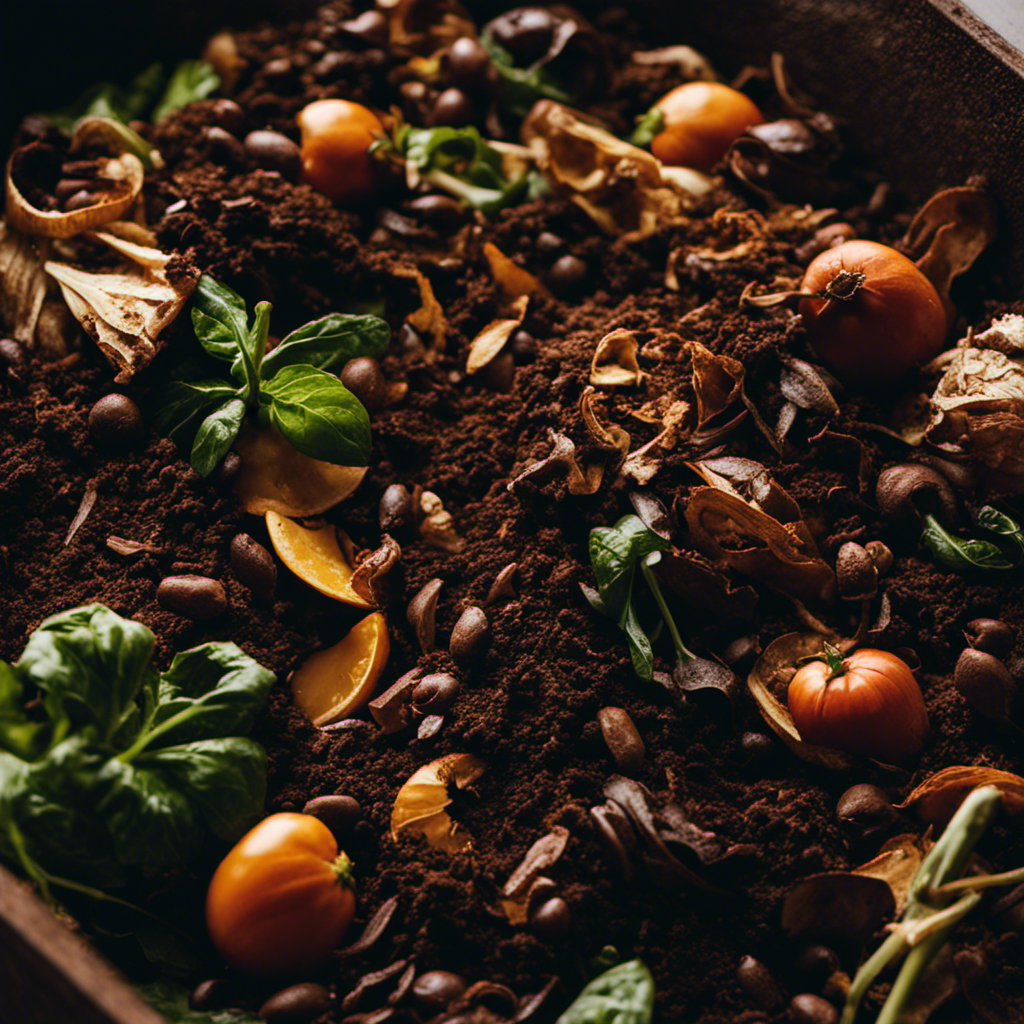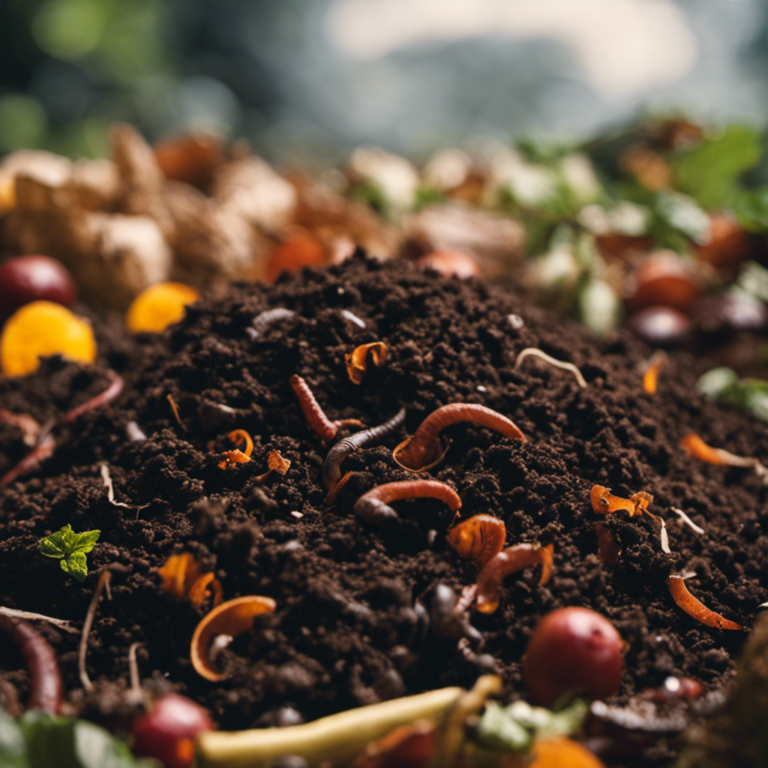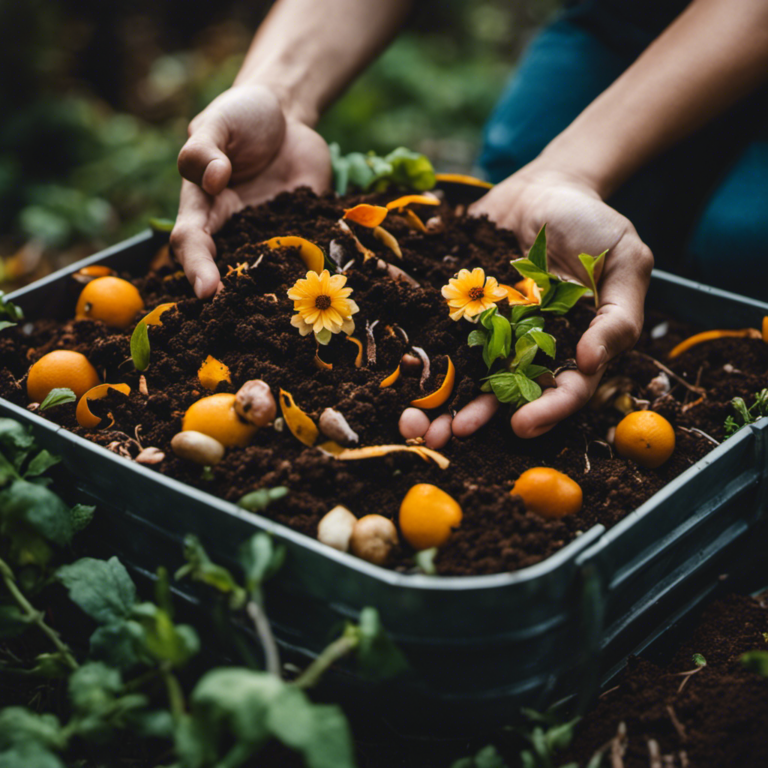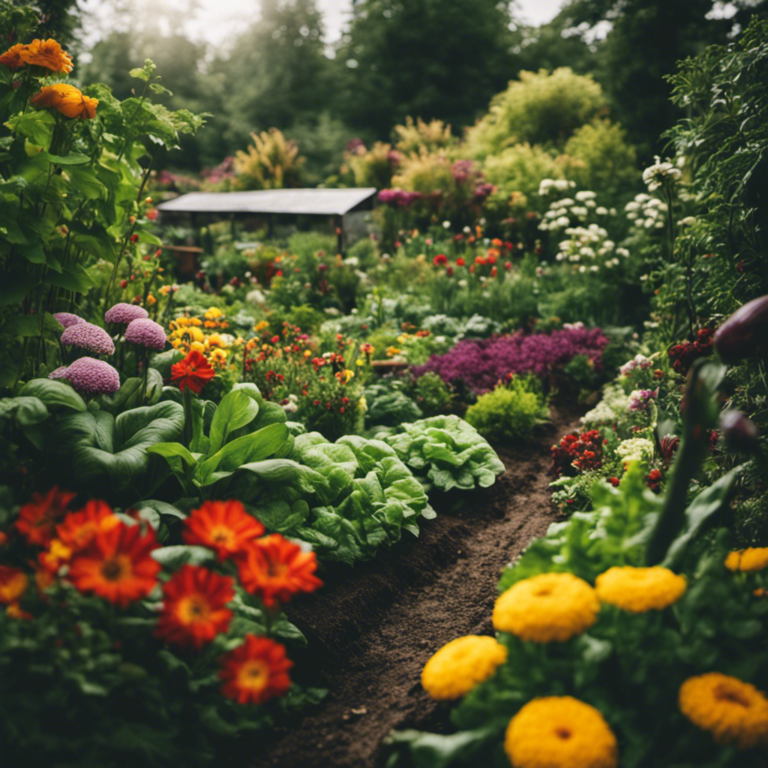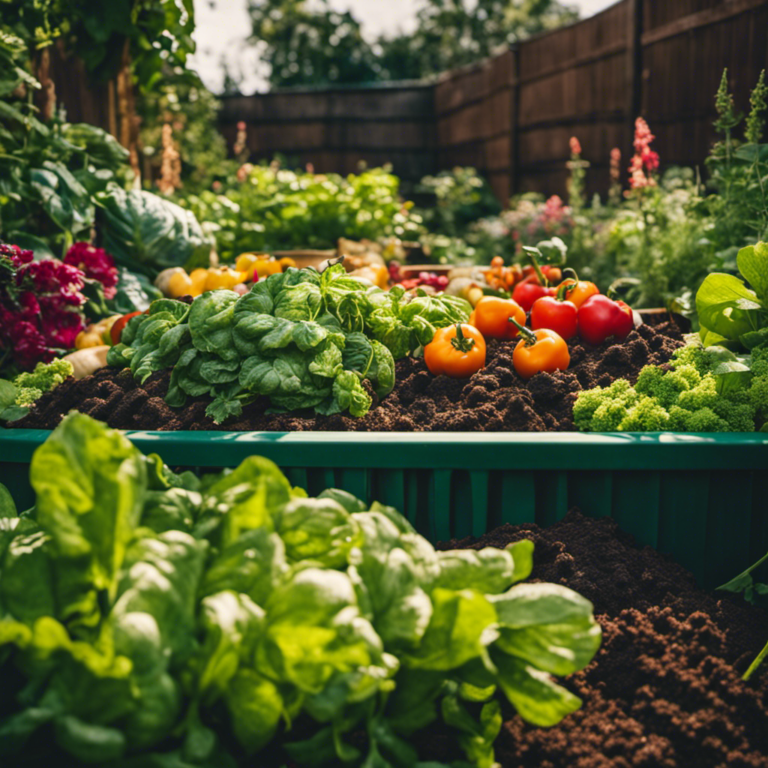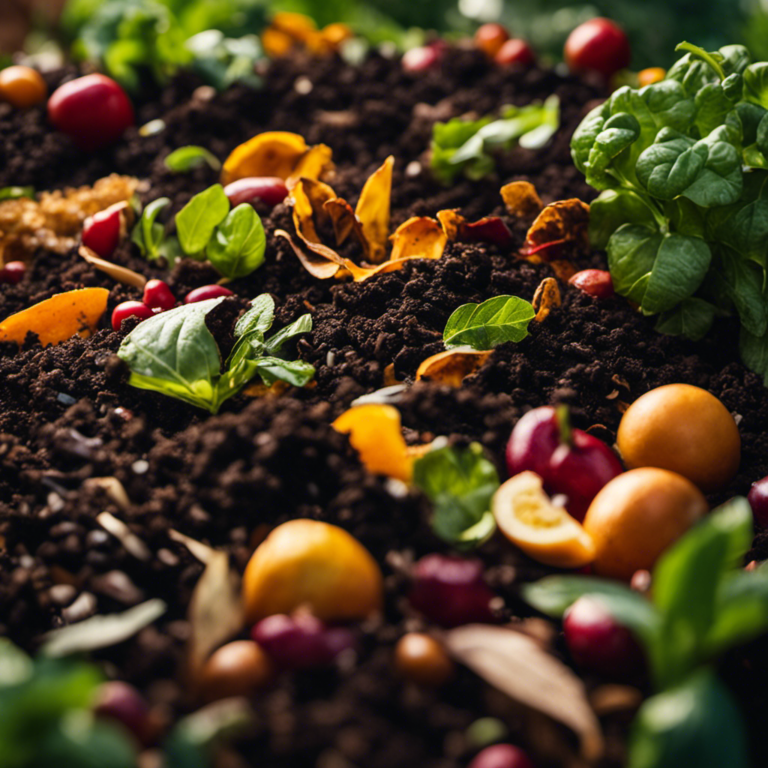As an organic farmer who is deeply passionate about sustainable practices, I’ve encountered numerous misconceptions surrounding the advanced techniques of composting.
However, it’s important to debunk these misconceptions and shed light on the true nature of advanced composting in organic farming.
Contrary to popular belief, composting goes beyond simply piling up kitchen scraps and waiting for them to decompose. It is a scientific process that involves utilizing worms, fermentation, acceleration, and carbon-rich materials.
In this article, we will explore the truth behind advanced composting and how it can benefit organic farming in a sustainable manner.
Key Takeaways
Advanced composting techniques play a crucial role in organic farming by enriching the soil and promoting a sustainable agricultural system. It is important to address misconceptions surrounding these methods and provide evidence-based information to encourage their adoption. While some may argue that implementing these techniques requires additional time and effort, the long-term benefits far outweigh any initial challenges.
One effective method is vermicomposting, which utilizes worms to break down organic matter and create nutrient-rich compost that enhances soil fertility. Another technique is bokashi composting, which involves fermentation to accelerate the decomposition of organic waste and produce a nutrient-dense compost that enriches the soil.
Hot composting is another advanced method that accelerates decomposition by maintaining optimal temperature and moisture levels. This results in faster breakdown of organic materials and the production of nutrient-rich compost. Additionally, biochar can be incorporated into compost to improve its ability to retain water and nutrients, ultimately benefiting the soil.
By embracing these advanced composting techniques, organic farmers can enhance the fertility and sustainability of their land. These methods provide valuable assets in organic farming and contribute to a more sustainable agricultural future.
Traditional Composting Techniques
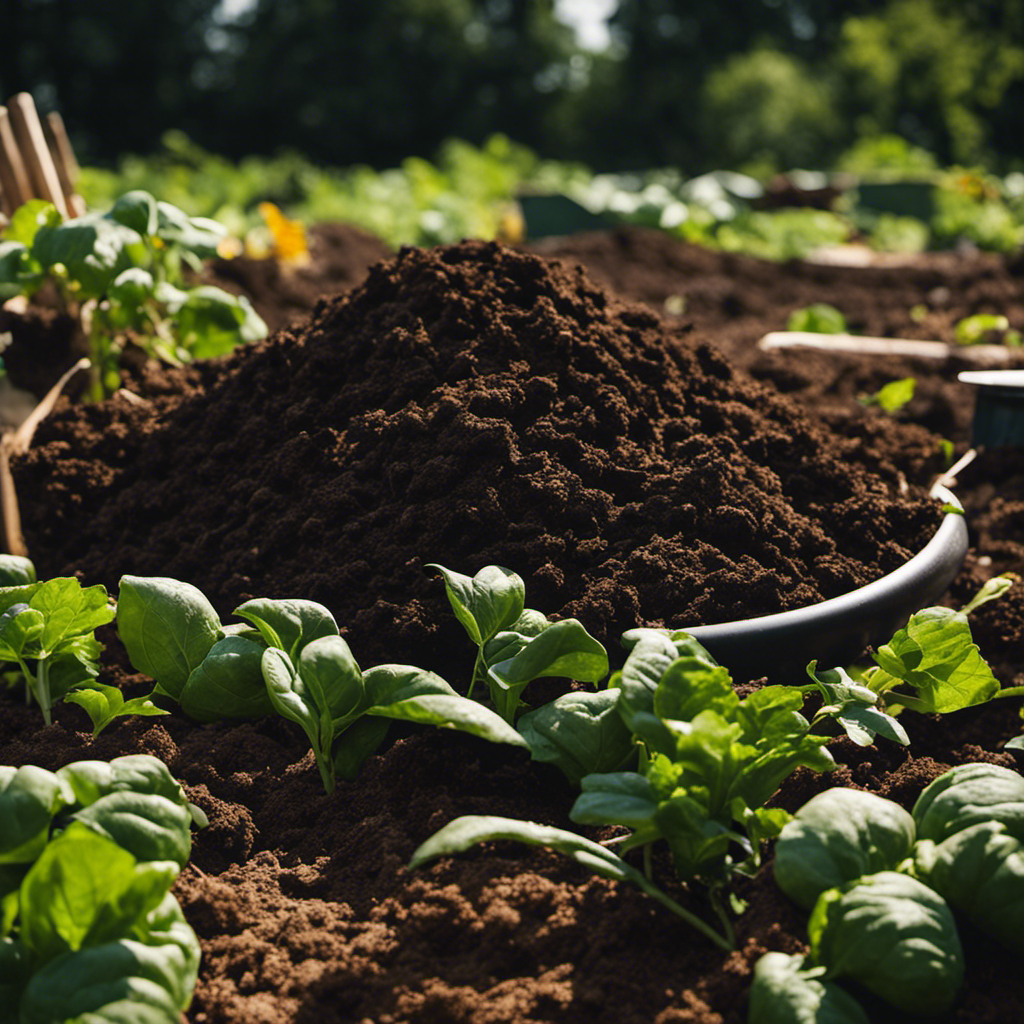
Traditional Composting Techniques
In my experience, I’ve found that traditional composting techniques, such as using manure and kitchen scraps, can be highly effective in enriching the soil for organic farming. Traditional composting offers numerous benefits that contribute to the overall health and productivity of the soil.
One of the primary advantages of traditional composting is its ability to provide essential nutrients to plants. Through the decomposition process, organic materials break down, releasing valuable nutrients like nitrogen, phosphorus, and potassium. These nutrients are then absorbed by the plants, promoting their growth and overall vigor.
Moreover, traditional composting helps improve soil structure. As organic matter decomposes, it creates a crumbly texture that improves the soil’s ability to retain moisture and allows for better root penetration. This improved structure also helps prevent soil erosion and compaction, which are common challenges in traditional composting.
Furthermore, traditional composting helps improve soil fertility over time. By continuously adding compost to the soil, it replenishes essential nutrients and microorganisms, ensuring a sustainable and productive farming system.
Despite its benefits, traditional composting may present some challenges. The most common include odor, attracting pests, and the potential for nutrient imbalances. However, with proper management techniques like turning the compost regularly and maintaining the right carbon-to-nitrogen ratio, these challenges can be effectively mitigated.
Vermicomposting: Harnessing the Power of Worms
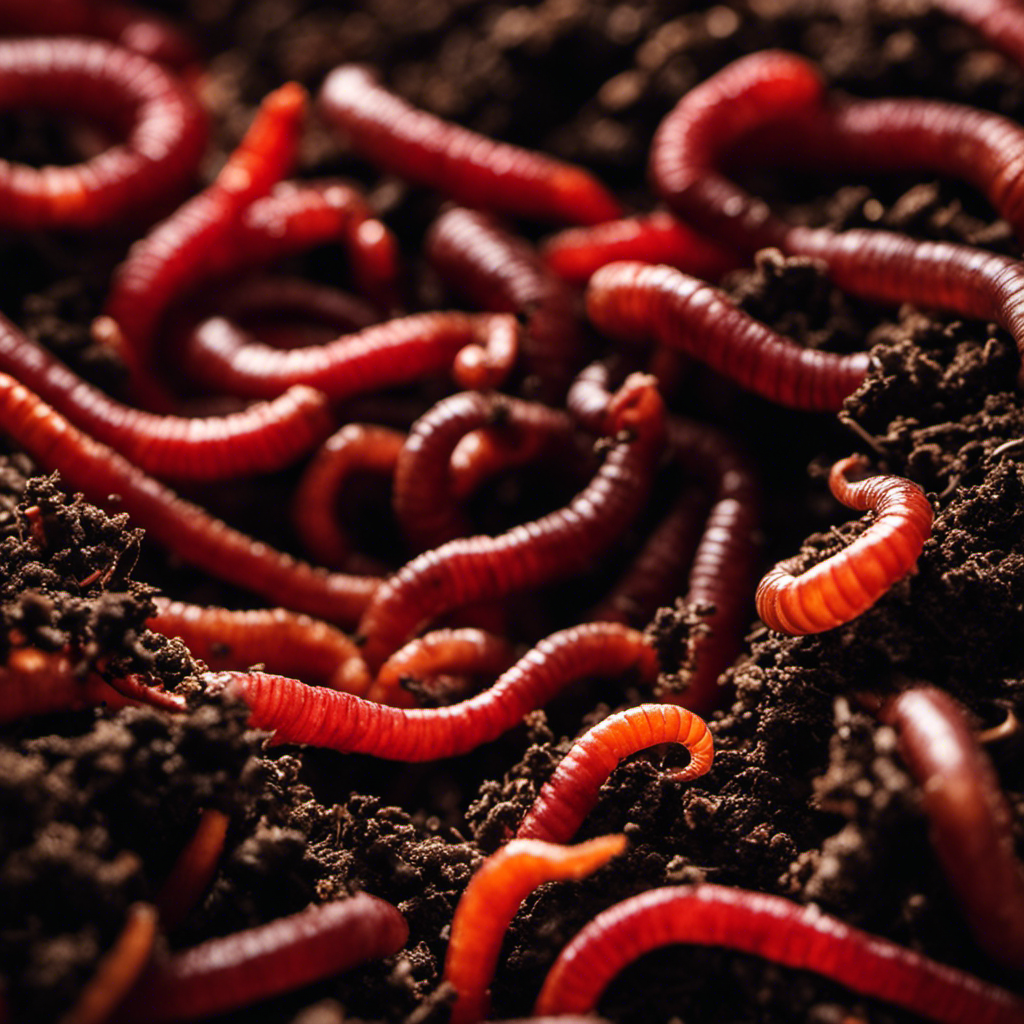
Harnessing the Power of Worms: The Benefits of Vermicomposting in Organic Farming
Vermicomposting plays a crucial role in advanced composting for organic farming. It involves using worms to break down organic waste materials and create nutrient-rich worm castings. This method has proven to be highly effective and offers numerous advantages for organic farmers. Let’s explore four key points to consider when it comes to vermicomposting:
-
Increased Nutrient Availability: Worm castings serve as a valuable source of nutrients for plants. They contain essential elements like nitrogen, phosphorus, and potassium, along with beneficial microorganisms that aid in nutrient uptake.
-
Improved Soil Structure: Vermicompost plays a significant role in enhancing soil structure. It increases water-holding capacity and promotes better aeration, leading to healthier root growth and overall plant vigor.
-
Pest and Disease Suppression: The microorganisms found in worm castings help suppress harmful pests and pathogens present in the soil. This reduces the reliance on chemical pesticides and supports a healthier ecosystem.
-
Proper Worm Bin Maintenance: To ensure successful vermicomposting, it’s essential to maintain the worm bin properly. This involves providing the worms with suitable bedding material, maintaining optimal moisture levels, and regularly adding organic waste for them to feed on.
By harnessing the power of worms through vermicomposting and adhering to proper worm bin maintenance practices, organic farmers can significantly enhance soil fertility, improve plant health, and reduce their dependence on synthetic fertilizers and pesticides.
Remember, vermicomposting isn’t only environmentally friendly but also a sustainable solution for organic farming. As farmers embrace this method, they contribute to a healthier ecosystem and promote sustainable agricultural practices.
[Custom Quote]: ‘Vermicomposting is a natural and efficient way to transform organic waste into nutrient-rich soil amendments, providing a sustainable solution for organic farmers.’ – [Your Name]
Bokashi Composting: Fermentation for Nutrient-Rich Soil
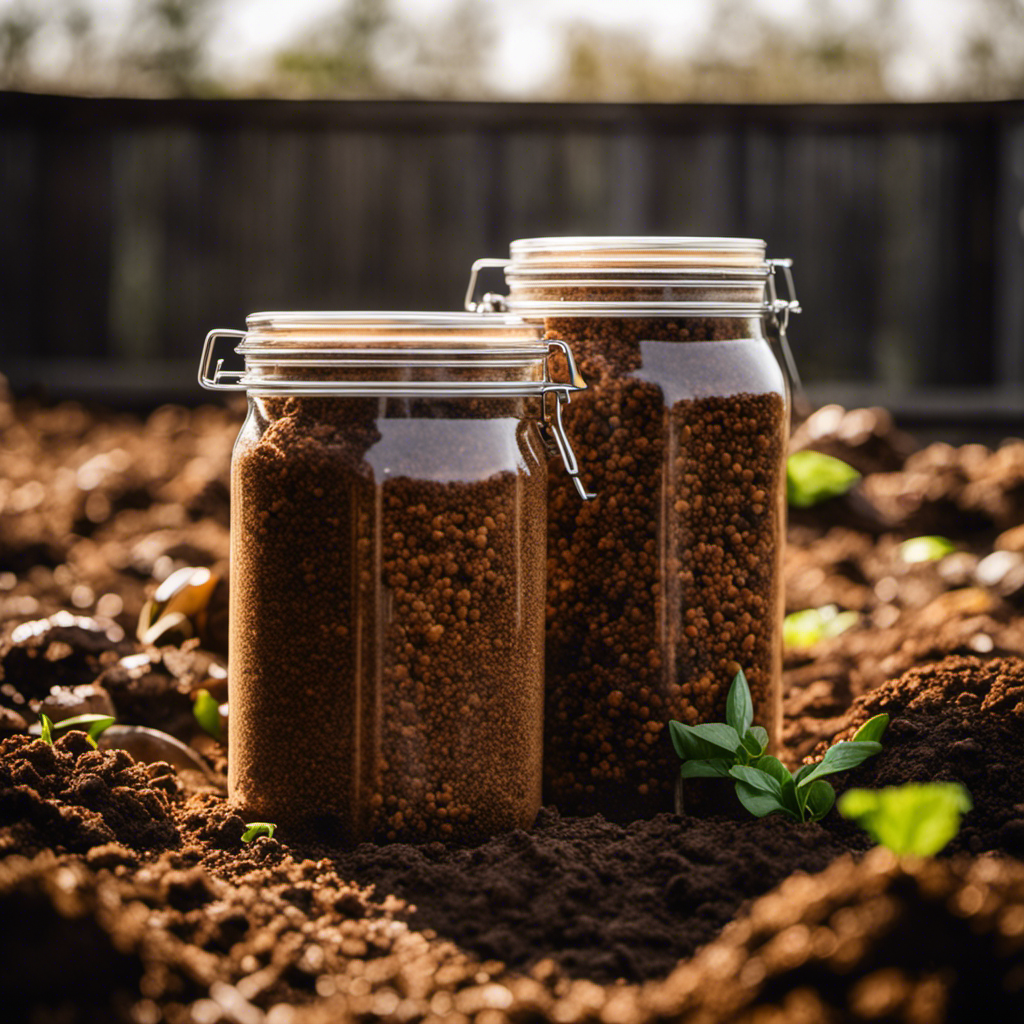
Continuing from the previous subtopic, let’s explore the benefits of Bokashi composting, a fermentation process that improves soil fertility. Bokashi composting involves using a mixture of sawdust, rice bran, and beneficial microorganisms to ferment organic waste.
This method not only breaks down waste quickly but also produces a nutrient-rich liquid fertilizer and compost that can be used to enrich the soil.
One of the main advantages of bokashi composting is its ability to ferment a wide range of organic waste, including kitchen scraps, meat, dairy products, and bones. This means that almost all types of organic waste can be recycled and turned into valuable resources for your garden or farm.
Another benefit of bokashi composting is its suitability for small spaces, making it ideal for urban environments or areas with limited outdoor space. The process is odorless and doesn’t attract pests, providing a convenient and hygienic option for composting.
To ensure successful bokashi fermentation, there are a few tips to keep in mind. First, it’s important to use the correct ratio of organic waste to bokashi mix. Generally, a 1:1 ratio is recommended, but this may vary depending on the type and amount of waste being fermented.
Second, tightly seal the fermentation bin to create an anaerobic environment. The beneficial microorganisms responsible for the fermentation process thrive in an oxygen-free environment. This step helps prevent the growth of unwanted bacteria and ensures a successful fermentation.
Lastly, regularly drain the liquid fertilizer produced during the fermentation process. This liquid, known as bokashi tea, is a potent fertilizer that can be diluted and applied directly to plants or used to enhance the nutrient content of compost.
Hot Composting: Accelerating the Decomposition Process
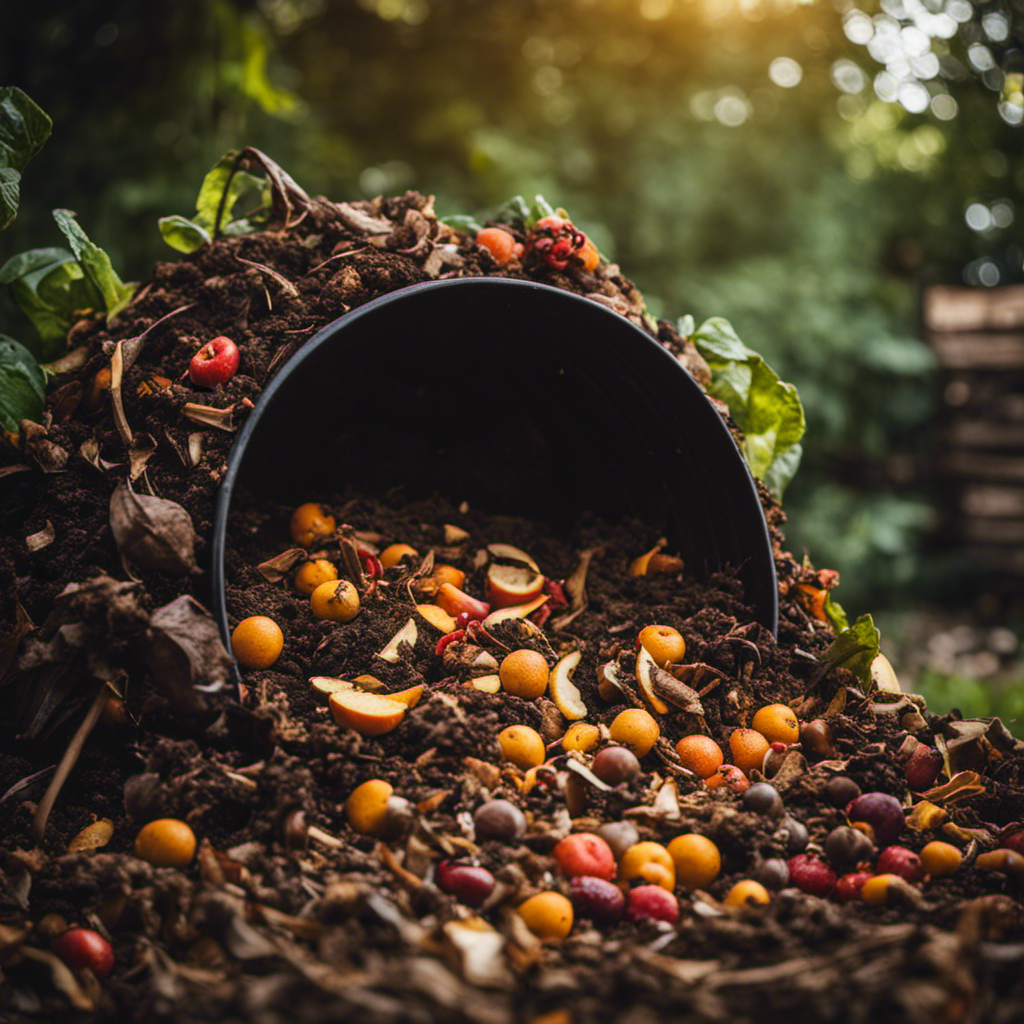
Accelerating the Decomposition Process: Hot Composting
To speed up the breakdown of organic materials and create nutrient-rich compost for my organic farm, I utilize a technique called hot composting. By carefully managing the compost pile and harnessing high temperatures, I’m able to expedite the decomposition process. Hot composting offers several benefits and can be achieved with some simple tips for successful composting.
Benefits of Hot Composting:
-
Faster decomposition: The high temperatures in a hot compost pile accelerate the breakdown of organic matter, resulting in quicker composting times compared to traditional methods.
-
Weed and pathogen control: The heat generated during hot composting helps eliminate weed seeds and harmful pathogens, reducing the risk of weed growth and disease transmission in the compost.
-
Nutrient retention: Hot composting preserves the nutrients in the compost, ensuring that the final product is rich in essential elements necessary for plant growth.
-
Odor reduction: The heat generated in hot composting facilitates more efficient breakdown of organic matter, minimizing unpleasant odors that can arise from anaerobic decomposition.
Tips for Successful Hot Composting:
-
Balance your compost ingredients: Achieving a proper balance of carbon-rich materials (such as dry leaves or straw) and nitrogen-rich materials (such as kitchen scraps or grass clippings) is crucial for efficient decomposition.
-
Monitor moisture levels: It’s important to keep your compost pile moist, but not overly wet. Aim for a moisture content similar to that of a damp sponge.
-
Regularly turn the pile: Turning the compost pile every few weeks helps distribute oxygen and heat, ensuring even decomposition and preventing the pile from becoming anaerobic.
-
Maintain proper pile size: To generate enough heat, a hot compost pile should be at least 3 feet high and 3 feet wide. Smaller piles may not reach the necessary temperatures for effective composting.
Biochar: Enhancing Compost With Carbon-Rich Material
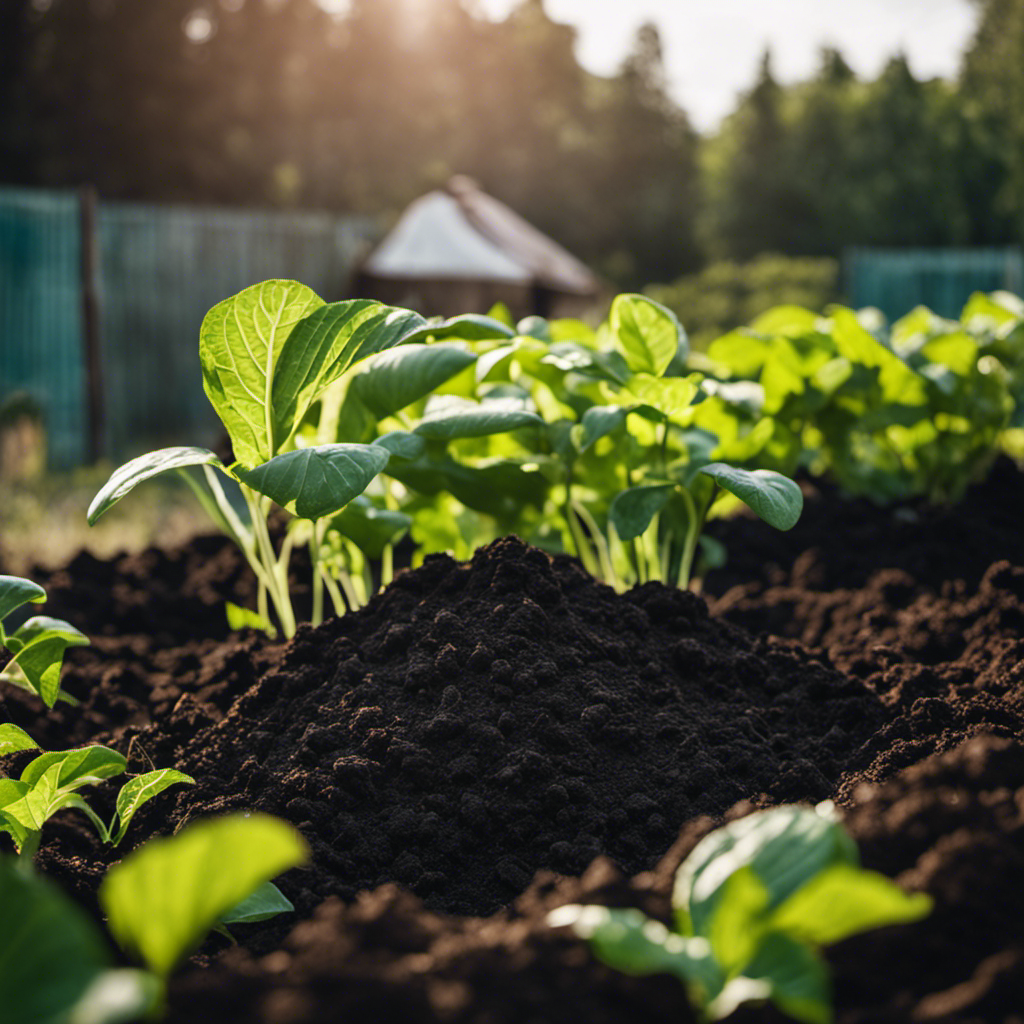
As I explore the world of advanced composting in organic farming, incorporating biochar becomes a crucial element in enhancing the nutrient-rich properties of my compost. Biochar is a carbon-rich material produced through the process of pyrolysis, which offers several benefits in soil enrichment and carbon sequestration in agricultural practices.
One of the main advantages of biochar in soil enrichment is its ability to improve soil fertility and nutrient retention. When added to compost, biochar acts as a sponge, absorbing and retaining nutrients like nitrogen, phosphorus, and potassium. This prevents nutrient leaching, ensuring that plants have a consistent supply of essential elements for growth. Additionally, biochar creates a habitat for beneficial microorganisms, promoting soil biodiversity and a healthy soil ecosystem.
In terms of carbon sequestration, biochar plays a significant role in mitigating climate change. By incorporating biochar into compost, carbon that would have otherwise been released into the atmosphere as greenhouse gases is effectively stored in the soil. This helps reduce the carbon footprint of agricultural practices and contributes to the long-term stability of carbon in the environment.
Conclusion
When it comes to advanced composting techniques in organic farming, it’s important to debunk any misconceptions surrounding them. These methods offer significant benefits for nutrient-rich soil and contribute to a healthier and more productive agricultural system. While some may argue that implementing these techniques requires additional time and effort, the long-term advantages far outweigh any initial challenges.
One effective method is vermicomposting, which harnesses the power of worms. By utilizing worms to break down organic matter, farmers can create nutrient-rich compost that enhances soil fertility.
Another technique is bokashi composting, which involves fermentation. This process accelerates the decomposition of organic waste and produces a nutrient-dense compost that can be used to enrich the soil.
Hot composting is another advanced composting method that accelerates decomposition. By maintaining optimal temperature and moisture levels, organic materials break down more quickly, resulting in nutrient-rich compost.
Additionally, biochar can be used to enhance compost. Biochar is a type of charcoal that, when added to compost, improves its ability to retain water and nutrients, ultimately benefiting the soil.
By embracing these advanced composting techniques, organic farmers can elevate the fertility and sustainability of their land. It’s essential to provide context and evidence-based information to encourage the adoption of these methods. With their numerous benefits, advanced composting techniques are a valuable asset in organic farming and contribute to a more sustainable agricultural future.
